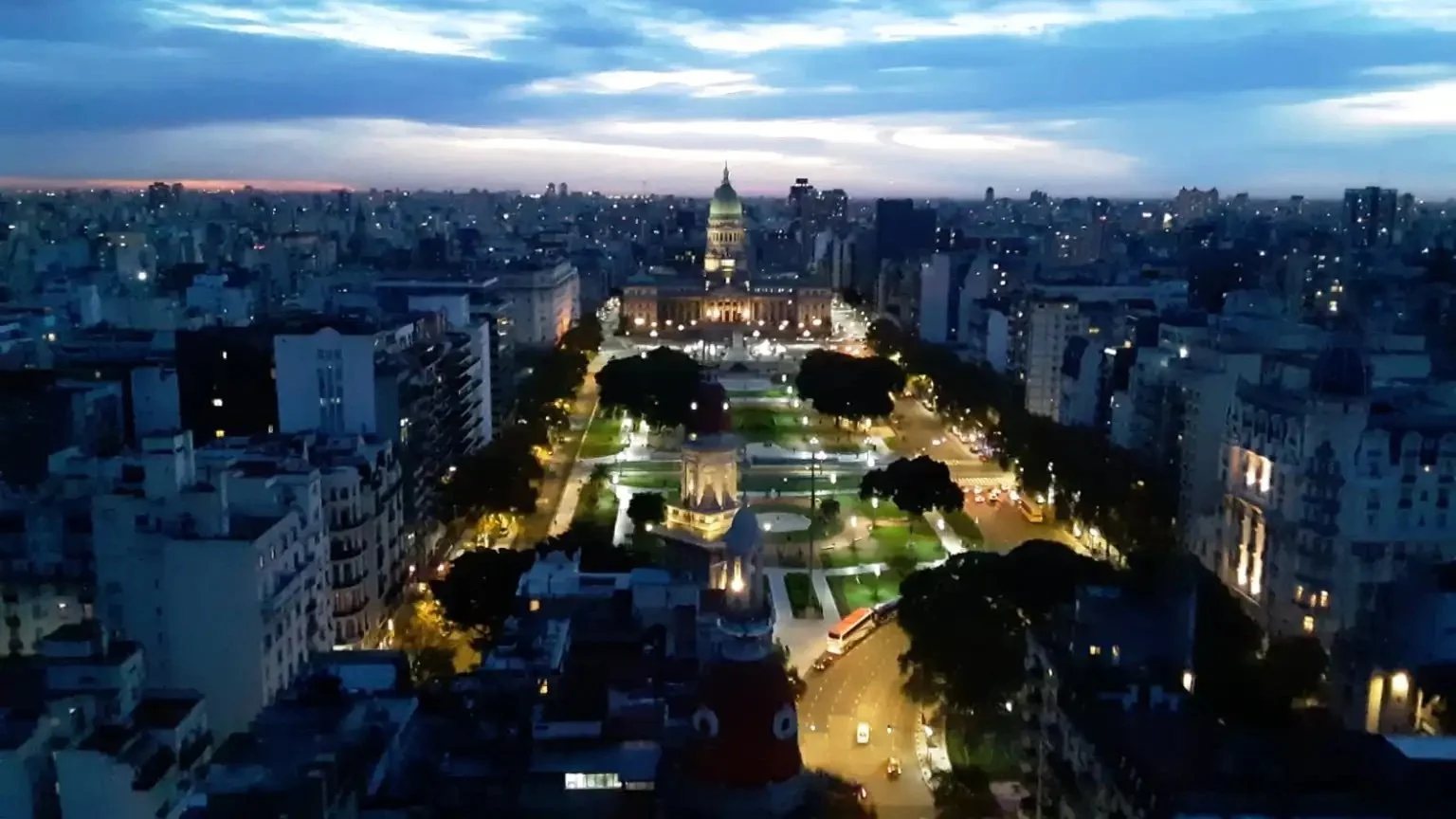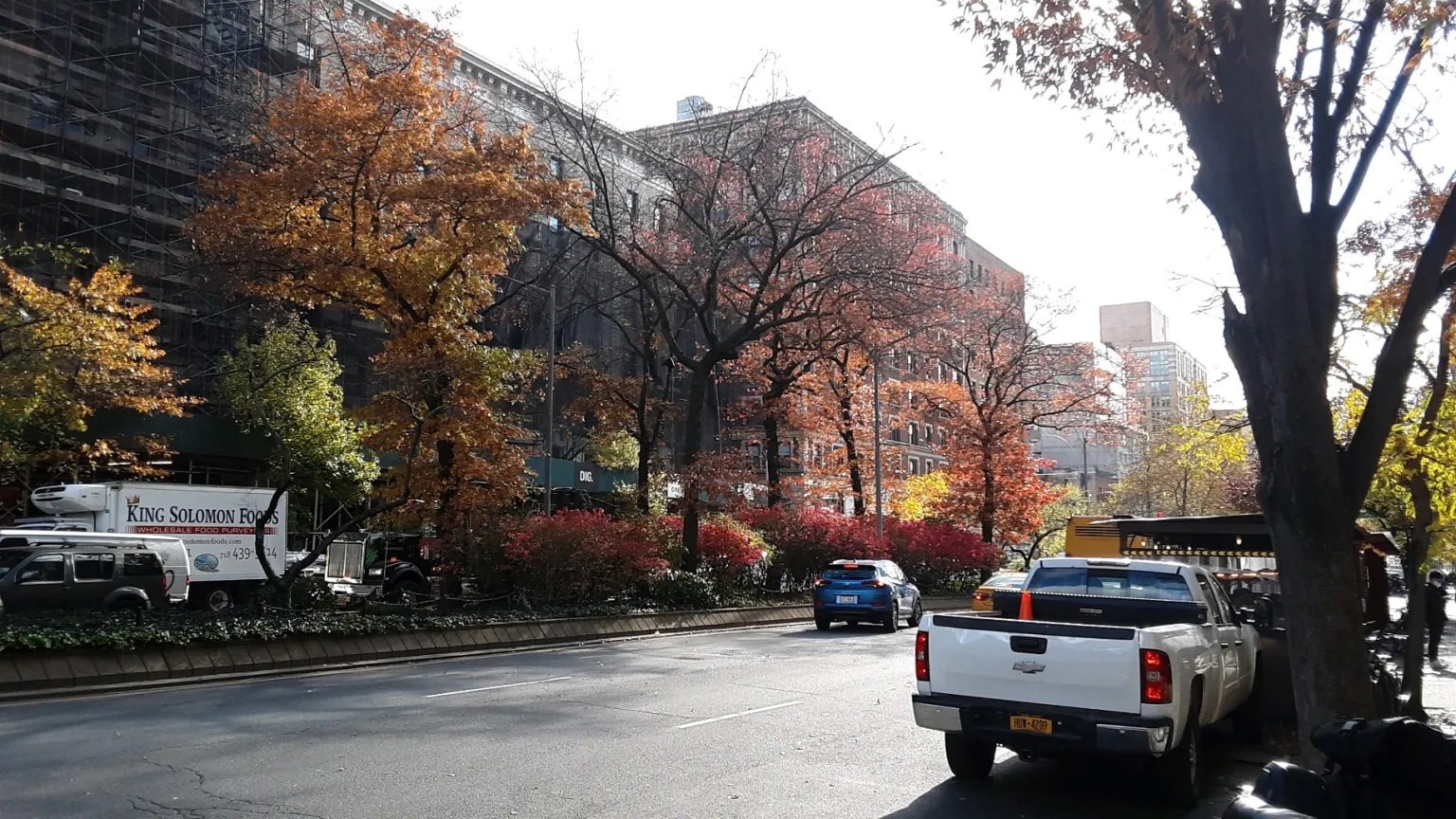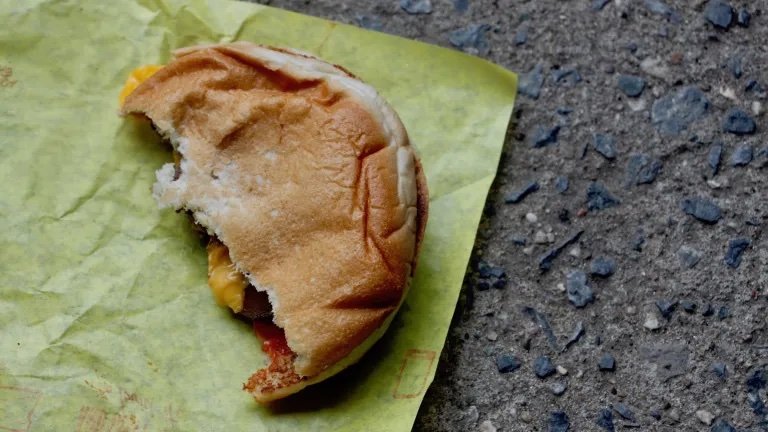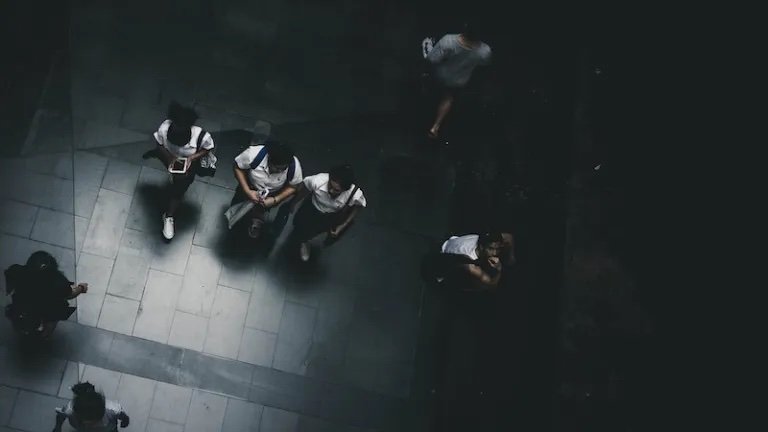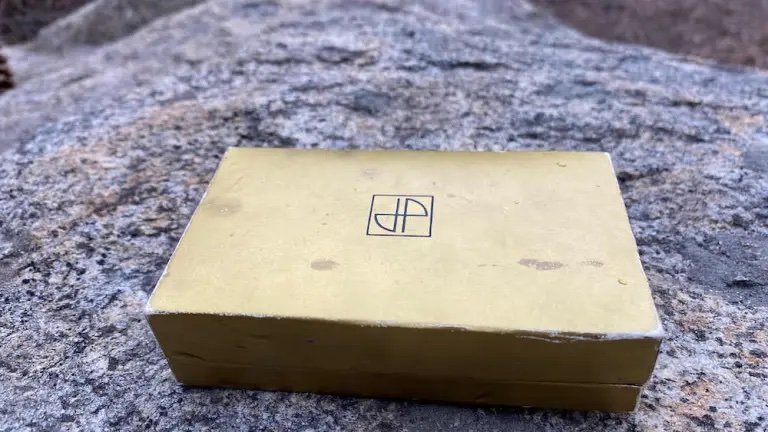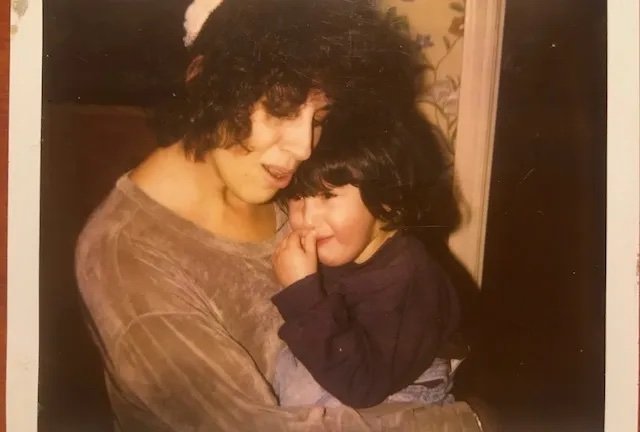60 for 60: Never Live Above Your Landlord
Recently, one morning at the crack of dawn, I was awoken by what sounded like a wrecking ball coming through my bedroom wall. It was, in fact, not coming through my bedroom wall, but rather the wall of the building next to me—a complete teardown. Apparently it takes more than one collision to destroy a structure of this size, because the sound carried on for hours, and then days, before transforming into other sounds—bulldozers moving brick, jackhammers splitting pavement, drills puncturing pipes—always rising with the sun. It’s a terrible way to start the day, particularly for a person who finds himself in a bad mood even at the best of times.
60 for 60: Borges on ‘Leaves of Grass’
Democracy is difficult to think about, difficult to write about, and difficult to live. At least, in 2022, a lot of people seem to believe so. Forty years ago, Jorge Luis Borges (writer of poems, essays, and “fictions”) spoke to an assembly of Columbia Writing students and made a beautiful claim: that Whitman’s Leaves of Grass is the most daring and the most successful of all literary experiments, because it is an epic poem of democracy. Such a poem had never been attempted before and has not been attempted since. (The picture above was taken by yours truly from a balcony of the Palacio Barolo, a Dante-themed building in Buenos Aires. The Argentina of Borges was and is no stranger to the fraught nature of democracy in a world ideologized in favor of hierarchy: so the juxtaposition of Dante and Whitman is very neat.) In the face of such a difficulty, many fall silent; not Whitman.
60 for 60: Recent Black Literature—The Political Dimensions
I recently got around to re-reading Robin Coste Lewis’s genius “Voyage of the Sable Venus.” As a poet interested in erasures and cut-ups, and as a queer Venezuelan immigrant deeply concerned with and invested in the liberation of every marginalized community, I was deeply moved by her project. To use the very language of oppressive art institutions, pamphlets, and works to weave the narrative of Black liberation and conceive of a future for the Black community that was forcibly taken to this country is something I held onto as I looked through Columbia Journal‘s archives, another institution that has regrettably done little in the way of publishing Black voices. I’m honored to work here at a pivotal moment, when the largest strike in the country is taking place on my campus and when the current editorial team at the Journal is making a conscious effort to elevate Black voices.
60 for 60: Reflections on Myth
A true gem from the archive: acclaimed comic book creator and author, Neil Gaiman, writing on the power of myth in the thirty-first issue of Columbia Journal, from 1999, a few years before Gaiman published his masterful American Gods in 2001. It is so special to see the germination of ideas here that would later populate that novel—why we need myths, what myths can tell us about the people who create them, how a story shifts with each retelling.
A Conversation with Ann Patchett
In Ann Patchett’s most recent essay collection, These Previous Days, her attention to memory invites readers to explore what it means to be seen as “our best and most complete selves.” The collection hosts practical advice on clearing out clutter (“How to Practice”), meditations on the publishing process (“To the Doghouse”), and intimate musings on marriage (“Flight Plan”). Throughout, Patchett calls for an embrace of life’s unpredictability and brings forth the brilliance that can be found in such imperfection. Writer Yvonne Conza spoke with the author recently about time, losing a friend, and putting life in order.
Cowardice
You’re not having a good time with things, are you? No, you’re not doing well at all. And it’s going to get worse before the day’s out. You’re nine, maybe ten, and this has been happening all the days you remember. At least, all the days counting the years from when you started at this school until now. What’s that: three? four? That’s the time we’re looking at here, and that seems right. Three, going on four. It seems nothing of consequence should be happening now, these being your elementary years, but we both know that’s not the case. It certainly doesn’t feel that way to you, right? Not with the dark ribbon of blue-black bruise wrapped around your leg. Or maybe it’s on your arm. You’ve had them there, too, so you know the life of a bruise. The way it starts red, inflamed, a welt, before it fades to this, a Rorschach blot you stare at in the privacy of your bathroom at home, after which it transmutes to a dull yellow-brown like the skin of a fruit, a banana, and you’ve been called that, too—a fruit, though you’re not sure you understand what a fruit is. You just know you’re different, quiet, introspective. You’d like to be left alone, but your introspection marks you out, makes you a target.
60 for 60: Consequences
Misunderstanding is a highlight of the virtual communication status quo; at least, lots of people have tended to think so for the past year and a half. “I can see you, but I can’t hear you”; “Sorry, I had the wrong link”; “I didn’t realize I was on mute”: these became stock phrases, and in future years they’ll be matter for both nostalgia and nightmares. What I suspect is that this situation dramatizes how miscommunication is always a feature of communication; and, with miscommunication, we invariably get mistrust.
Notes on Chance and Partial Demises, Beginning with Elvis’s Death
In the Iron Mountain maternity ward, eight hundred miles north of Graceland, a nurse repeated what the radio said: “Elvis is dead.” B was born, black strands slicked to his head.
The First Time I Tried McDonald’s
I was dead, or, at the very least, considered dead in the eyes of my country. When the Soviet Union fell apart, Saint Petersburg came down along with it. My mother drank most days until she could no longer see, and in the wake of her biting neglect, I was left a wounded animal. When I was eight years old, a stranger came to the apartment and told me I was going to be an orphan for the rest of my life. As we drove away from my mother’s apartment, I quietly watched the back of the stranger’s head with bewildered eyes.
Notes from Underground
She approaches me at a party. Tells me he handcuffed her to his dining table and left her there for ten hours. Said he’d thought she had the key. His mistake for forgetting to remove it from his breast pocket. Her eyes are the kind of green that makes you sorry to be looking for so long, matte and immovable. Not like mine. Gray and protean. There’s a distantness about her, surprising dispassion for someone as young as she is. She looks tired. She doesn’t cry or even flinch as she recounts this to me, as though explaining the plot of a movie she watched almost too long ago to recall the actor’s name. She takes a sip of her beer, offers me one. There’s a cooler on the stairs, she says. Just throw a few bucks in the cupholder. I thank her, but do not move right away. I stay in her placid stare, wanting something to happen, wanting for us to embrace one another, or break down. Isn’t that what we deserve? United by the same violent touch. But we aren’t sisters, nor are we friends, and in many ways our relation was for the longest time exclusively adversarial. Well, see you, I say. Yeah, she says. See you.
Next Time Won’t You Sing With Me
Abecedarian
Sure, why not? If I’m going to tell it, and I’m not at all sure that I am, why not wrap it in structure, cover it with metaphor, poetry, asides? Better to bury it deep behind the chest wall, the pectorals, the silicone implants that stand in for ducts and fat and lobules, the scarred-up skin. Tell it muffled, tell it crooked, whisper it into a thousand layers of hospital green cotton, bubble it up through a vat of Adriamycin®. Or not. Maybe best not to tell it at all.
Here You Go
Just so you’ll know: this doesn’t end with me doing the right thing. Why else would it stick with me for forty years? Who has the time, space, or inclination to remember one’s moral successes? Don’t, however, go into this expecting a thrilling tale. Complicit inaction is rarely thrilling, especially when there’s not a great deal at stake in the first place, as was the case here. But the same could be said for life in general—rarely thrilling, rarely much at stake. There are occasional moments, however, when we sense the ethical gravity of things a bit more than usual, moments when we feel our responsibilities to others a bit more keenly, even when the decisions we end up making don’t affect all that much. Perhaps we feel these things most when we know we’re doing our best to deny the choices available to us. The denying is what has stuck with me.
Tour Guide
After being incarcerated for nearly a decade, I have finally made it to a minimum-security facility. In the federal system, these facilities are referred to as camps, typically companion facilities to a United States Penitentiary. This dual-facility complex, U.S.P Lee and Camp Lee, is located in Virginia, wedged between southeast Kentucky and northeast Tennessee. The heart of Appalachia.
Joy
The perfume is called Joy, but the black box looked sinister to me as a kid, funereal; it looked like it should hold ashes, cigarettes, a lifeless heart. The perfume didn’t smell joyful to me, either—it smelled like sugar laced with poison. I couldn’t understand why my mother loved it so, why my father bought it for her so religiously—tiny bottles in a cushioned box, a larger bottle for extra special occasions. I was told it was expensive, rare, told it was the most generous gift, but it bothered me, felt like something between my parents I couldn’t access, some terrifying adult brand of joy.
Eggbert
It isn’t so much that my brother lives on the freer side of a prison wall, or that when I’m released—sometime after 2024—I will have spent more years inside than I have lived in the outside world. What’s useful for you to know is that I will bring home with me an overflowing collection of memories, both terrific and terrible, of the people I met in this razor-wired land of misfit toys and wayward boys. It’s the memory of these people that will drag me home alive.
Good Night, and Good Cluck
On a gloomy spring evening, only one chicken returned home on schedule. No need to count heads. At this point, we had just three left, the others picked off one at a time like an Agatha Christie novel. I kept calling out in my usual way.
A Glimpse of Abundance
The roadside marquee caught my eye in the summer of 1979. With its black silhouette of tiny legs kicked up, it promised a break from responsibilities engulfing me. At 26, I’d recently ended a marriage launched just days after passing my driver’s license test at 16. Although by now I was a mother of two young sons, the boys had recently decided to live with their father for a while. Suddenly, a newfound sense of possibilities shimmered around the edges of my swamp of anger at an unfaithful husband yoked to a pervasive sorrow over an end to my happily-ever-after dream.
Checkmate
I knew that my fatherless happiness wouldn’t last, but I never understood why my mother chose Igor Borisovich over her other suitors. Anyone—anyone at all would have been better. Gena had his own car, Oleg wrote poetry and Misha brought me a doll in a blue satin dress from East Germany. But aside from providing little joys to brighten our 1980s Soviet existence, all those men seemed much kinder than my new stepfather.
Labyrinths
My mother speaks for me. I nod along as she recounts the twisted history of my illness, too weak to correct her when she trips over a detail. “I’m a doctor,” she declares, and physicians pay heed. They answer her litany of questions, tolerate the shrill panic in her voice. My mother is a medical professional, and this is my golden ticket—the only thing that will save me. I’m one of the lucky ones. Some people wait years, decades, hundreds of thousands of dollars before they arrive at a diagnosis of Lyme Disease. Mine came easy: a week after the pink rashes that colonized my skin, a variant of the classic bull’s eye. Treatment was supposed to last four weeks.

